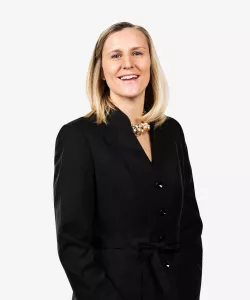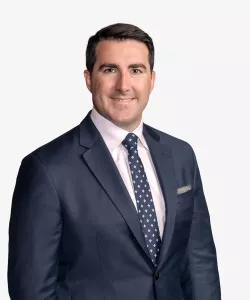Friday Enforcement Wrap: Two Additional Guilty Pleas in Ongoing Bid Rigging Investigation Produce $127 Million in Fines
Headlines that Matter for Companies and Executives in Regulated Industries
DOJ News
Two Additional Guilty Pleas in Ongoing Bid Rigging Investigation Produce $127 Million in Fines
Korea-based companies Hyundai Oilbank Co. and S-Oil Corporation have pled guilty and entered into civil settlements for their part in a bid-rigging conspiracy concerning contracts to supply fuel to the Army, Marine Corps, Navy, and Air Force in South Korea. The guilty plea will require the companies to pay a total of $75 million in fines, and the civil settlement provides for payment of an additional $52 million to the government in civil penalties.
Read the DOJ press release here.
California Accountant Pleads Guilty to $27.5 Million Wire Fraud
A certified public accountant in Long Beach, California pled guilty to a wire fraud charge from her Ponzi scheme that defrauded investors—including clients of her accounting firm—of tens of millions of dollars between 1996 and 2017. The defendant acted as an unlicensed investment advisor to solicit investments in two purported investment opportunities, but she instead deposited the investment funds into personal accounts that she used for her own expenses and family trust accounts, and paid the investors returns with other investors’ funds. The defendant’s victims collectively invested more than $40 million in her scheme and lost more than $27 million. The defendant will be sentenced in July and faces a maximum prison sentence of twenty years.
Read the DOJ press release here.
Two Oklahoma Doctors Settle Illegal Kickback Allegations Regarding Compound Drugs
Two Oklahoma doctors entered into settlement agreements with the U.S. Attorney’s Office for the Northern District of Oklahoma to resolve allegations that they accepted illegal kickbacks from OK Compounding, LLC. OK Compounding allegedly provided physicians with prescription pads containing pre-printed drug compounding formula options for pain creams, notwithstanding that compounded drugs may not be mixed or marketed in bulk. The physicians would select from OK Compounding’s selected offerings in the pre-printed pad and submit the prescription directly to the pharmacy, rather than writing a prescription for a compounded drug tailored to the specific needs of the patient and permitting the patient to have the prescription filled at his or her preferred pharmacy. OK Compounding allegedly paid Defendants medical director fees in exchange for their prescribing these pain creams for their patients, including Medicare and TRICARE beneficiaries, thereby paying illegal kickbacks in violation of the False Claims Act. The doctors settled with the government for close to $130,000.
Read the DOJ press release here.
Litigation News
Supreme Court Weighs Statute of Limitations in FCA Cases
On Tuesday, the Supreme Court heard oral argument in Cochise, on the issue of when the “government knowledge” statute of limitations (or “tolling provision”) should apply in False Claims Act cases. The FCA requires that claims be filed within six years after the alleged conduct occurred or three years after the government knew or should have known of all material facts, subject to a bright-line 10-year statute of limitations. The Court is now tasked with deciding whether the latter “government knowledge” statute of limitations applies regardless of whether the government intervenes in the lawsuit.
In Cochise, the relator filed a lawsuit in 2013 alleging that Parsons Corp. submitted false claims to the Department of Defense seven years earlier, but within three years of notifying the FBI. The district court dismissed the lawsuit as barred by the statute of limitations, but the Eleventh Circuit reversed, holding that a suit may be filed within three years of the “government’s knowledge” of the material facts notwithstanding that the government had not intervened. The defendants argued Tuesday that equitable tolling principles dictate that the “government knowledge” statute of limitations should apply only when the government intervenes, as such rules are intended to preserve a party’s ability to sue until the party reasonably should know it possesses a cause of action.
The Fourth and Tenth Circuits had previously adopted this reasoning to hold that the government knowledge statute of limitations applies only when the government initiates or intervenes in the lawsuit. The justices’ questioning, however, signals that the Court may be leaning towards a more textual interpretation of the FCA that could potentially expand the statute of limitations for relators in the remaining four years of the hard ten-year limitations period. The case is Cochise Consultancy Inc. v. United States ex rel. Hunt, No. 18-315, in the United States Supreme Court.
See Arent Fox’s past analysis of the Eleventh Circuit’s decision in Cochise here.
SEC Sues Volkswagen AG for Fraud in Emissions Scandal
The US Securities and Exchange Commission brought suit against Volkswagen AG and its former CEO for violating the anti-fraud provisions of the federal securities laws, alleging that Volkswagen defrauded investors by failing to disclose that the company’s “clean diesel” cars did not comply with emissions standards.
The SEC claimed that investors were misled into buying more than $13 million in bonds and asset-backed securities at inflated prices because the bond-offering documents failed to disclose that the company used so-called “defeat devices” to cheat emissions tests. Volkswagen has already paid more than $4.3 million in penalties and expended substantial additional sums to invest in clean technology and repay consumers in connection with a Notice of Violation issued by the Environmental Protection Agency in 2015. The case is U.S. Securities & Exchange Comm’n v. Volkswagen AG, No. 3:19-cv-01391, in the Northern District of California.
Pharmacist Sentenced to 10 Years in Prison For $100 Million Fraud Scheme
A Florida pharmacist faces a 10-year prison term as a result of his participation in a scheme to bill Medicare, TRICARE, and commercial payers $121 million for custom pain creams that were either not medically necessary, not actually provided to the patients, or were procured based on illegal kickbacks. While the eight other individuals implicated in the scheme chose to plead guilty, the defendant went to trial and was convicted of health fraud conspiracy, money laundering conspiracy, and health care fraud. The defendant’s sentence also requires the defendant to pay $3.2 million in restitution and forfeit an additional $1.4 million. The case is United States v. Adebayo, No. 1:18-cr-20538, in the Southern District of Florida.
Contacts
- Related Industries
- Related Practices
-
Read Time
6Minutes





